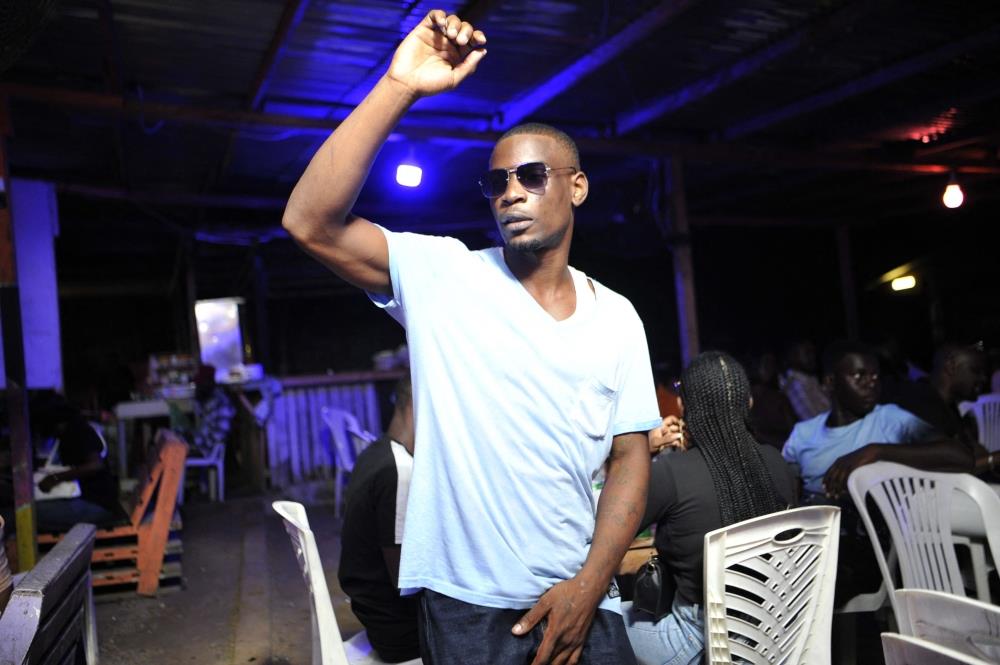
Gabon Artists Dream Of Taking Music Born In Prison To Global Stage
Libreville: In a bar in Gabon's capital Libreville, revellers get up and dance as soon as the DJ plays N'Tcham -- a local rhythmic genre born out of the city's prisons.
Among young Gabonese, N'Tcham has dethroned Nigerian afrobeat and South Africa's amapiano, both of which have made an impact on the global stage.
"In slang, N'Tcham means brawl," said Essone Obiang, of Gabonese music streaming platform GStore Music.
"Basically, it's a dance born in prisons which expresses all the violence that there is in the working-class neighbourhoods. The robberies and assaults," he said.
The genre began with the dance, Obiang said. The music came afterwards, inspired by rap, afrobeat and traditional Central African music.
N'Tcham artists such as L'Oiseau Rare, Eboloko or Fetty Ndoss, who notch up millions of streams on music platforms, are the country's new music greats.
It's the "pop of Gabon", says Obiang. But musicians hope to take the sound well beyond the country's borders.
'Generational conflict'
With over 40 million streams, L'Oiseau Rare is proud to represent the heritage of his small French-speaking Central African country with two million inhabitants.
"N'Tcham has its own instruments: zithers, flutes and brass instruments and above all an accelerated afrobeat or dancehall rhythm," he told AFP.
While artists use French in their lyrics, N'Tcham is principally based on slang -- an advantage for the artist who has mastered the "language of the ghetto in Gabon."
Having spent time in detention, he recounts his experiences in his lyrics and hopes to counter prejudice.
"N'Tcham is seen as noisy music that is all about partying. For me, the aim is to get a message across," he said.
"It is a little complicated with the purists," said L'Oiseau Rare, who regrets a disparagement of a type of music "most of whose artists come from the ghetto."
In Gabon, the rejection sometimes comes from the rap scene, which makes a point of disassociating itself from that style of music.
"There are rappers who consider that the messages conveyed in N'Tcham are an apology for bad morals," said Fallone Endambo Makata, who directed a documentary on the genre.
Obiang, of GStore, said N'Tcham artists are "heirs of what rappers built".
"Today they have their own language, their own attitude, their own codes and in the end, their own music, which has little to do with what was done before.
"It's a kind of generational conflict," he said.
'Leaving Gabon'
In a studio in Libreville's Alibandeng district, 22-year-old Dementos has recently thrown himself into the movement and seen his career take off at full speed.
"I've really had a boost to my career. I didn't even understand it myself," he joked.
His music has gained hundreds of thousands of listens in just a few months -- leaving the artist dreaming of "taking N'Tcham out of Gabon".
"We're listened to at home, that's good, but we need to discover other countries, other horizons. That's really what I'm fighting for," he said.
To grow, N'Tcham artists are developing promotional strategies that rely almost exclusively on social media.
"These young people have totally understood the internet. As soon as a sound is released, it goes viral," said Clancy Bissela, co-founder of Bweli Tribe, a media outlet specialising in African urban music.
N'Tcham might be homegrown but would resonate beyond Gabon, Bissela said.
"It's very Gabonese but has a message that can be heard all over Africa, even all over the world. It just needs to reach people's ears," he said.

Legal Disclaimer:
MENAFN provides the
information “as is” without warranty of any kind. We do not accept
any responsibility or liability for the accuracy, content, images,
videos, licenses, completeness, legality, or reliability of the information
contained in this article. If you have any complaints or copyright
issues related to this article, kindly contact the provider above.


















Comments
No comment